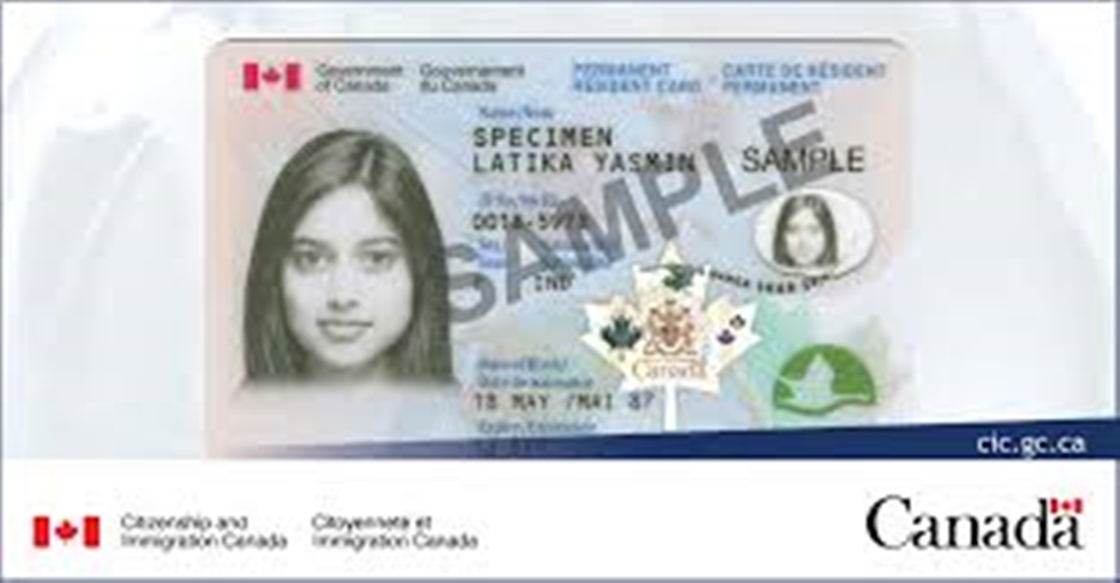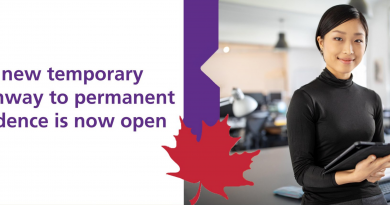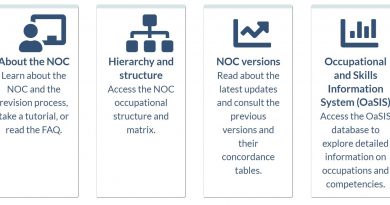Family Class: Assessing the Sponsor
In order to apply the public policy, officers first have to find that sponsors do not meet the income requirements under the IRPR for the 2020 taxation year. If sponsors meet the condition in the public policy, the principal applicant and their dependants (if applicable) may be eligible for permanent residency even though their sponsor does not meet the regulatory income requirements.
The 3 steps below highlight the 3 different scenarios with next steps for each (assuming that the sponsors in question met the LICO + 30% for 2018 and 2019):
- First, verify whether the “Total Income” (#3) is equal to or greater than the “Minimum Necessary Income Amount” (#6). If it is, then the “Minimum Necessary Income” is “Met” (#5).Result: Met without 2020 public policy: The “Total Income” (#3) is equal to or higher than the “Minimum Necessary Income Amount” (#6); the sponsor did not rely on the 2020 public policy.
- If the “Total Income” (#3) does not equal or exceed the “Minimum Necessary Income Amount” (#6), verify whether the “Total Income” (#3) is equal to or greater than the “LICO Amount” (#2). If it is, then the “Minimum Necessary Income” is “Met” (#5). Note: This GCMS field may need to be manually changed to “Met”.Result: Met with 2020 public policy: The “Total Income” (#3) is equal to or higher than the “LICO Amount” (#2), but lower than the “Minimum Necessary Income Amount” (#6); the sponsor has benefitted from the 2020 public policy.
- If neither scenario above is applicable, then the “Minimum Necessary Income” is “Not Met”.Result: Not Met: The “Total Income” (#3) is less than the “LICO Amount” (#2); the sponsor does not benefit from the 2020 public policy.
Summary of GCMS assessment
| Total income for the sponsor (and co-signer, if applicable) for the 2020 taxation year in GCMS | Does the sponsor meet the regulatory income requirements to sponsor? | Does the sponsor have sufficient income that the sponsored person could benefit from the public policy? |
|---|---|---|
| Higher than the “Minimum Necessary Income Amount” (#6) | Yes | Not applicable |
| Higher than the “LICO Amount” (#2), but lower than the “Minimum Necessary Income Amount” (#6) | No | Yes |
| Lower than the “LICO Amount” (#2) | No | No |
Family class sponsors who received COVID-19 benefits for the 2020 taxation year
Since some sponsors (and co-signers, if applicable) may have been affected financially by the COVID-19 pandemic, family class sponsors will be able to count the following benefits in their income calculation for the 2020 taxation year:
- any Canada Emergency Response Benefits issued under the
- Employment Insurance Act or
- Canada Emergency Response Benefit Act
- other temporary COVID-19-related benefits
- as long as they are not part of provincial social assistance programs
Canada Emergency Response Benefits issued under the Employment Insurance Act or the Canada Emergency Response Benefit Act are not considered social assistance and will be included in line 15000 (previously line 150) of the Notice of Assessment. COVID-19-related benefits are reported in line 13000, which in turn is included in line 15000. Since line 15000 includes federal COVID-19 benefits, there is no requirement for an officer to identify and add an amount to the income calculation.
Any amount appearing on line 14500 is considered social assistance. Since the Canada Revenue Agency includes line 14500 in the total income (line 15000), officers must subtract this amount from line 15000 to comply with the requirement under subparagraph R134(1)(c)(ii) and subparagraph R134(1.1)(b)(ii) to exclude social assistance received by the sponsor from a province from the income calculation. For other temporary COVID-19-related benefits, if a province or territory has determined that their benefit is considered social assistance, IRCC will agree with the province or territory’s interpretation and also treat the benefit as such. The assessment of social assistance continues to be the same as before the application of this temporary public policy. As a reminder, as per paragraph R133(1)(k), a sponsorship application can only be approved by an officer if, from the day on which the application has been filed until the day a decision is made, the sponsor is not in receipt of social assistance for a reason other than disability.
Duration of sponsorship undertakings
The undertaking takes effect on the day the sponsored person becomes a permanent resident. The lone exception is sponsored persons who hold a Temporary Resident Permit (TRP).
For sponsored foreign nationals who were issued a TRP under A24 following an application for a permanent resident visa, the undertaking takes effect on the day they enter Canada or, if they are already in Canada, on the day on which they obtain the TRP following their application to remain in Canada as a permanent resident [R132(1)(a)(ii) ].
Sponsors and co-signers remain responsible for the sponsored person throughout the period of temporary resident status and continue their sponsorship responsibility throughout the specified period of the undertaking, commencing on the day the applicant becomes a permanent resident.





